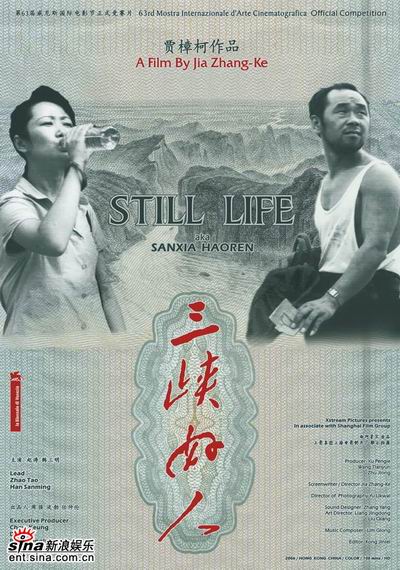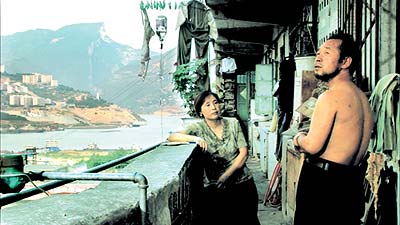| Home / Entertainment / News | Tools: Save | Print | E-mail | Most Read |
| Golden Lion Winner Doubts Success with Home Audiences |
| Adjust font size: |
Chinese director, Jia Zhangke, has said he doesn't expect to scoop box office success with his Venice Golden Lion Best Film Still Life. Still Life will be released nationwide on December 14 but a number of home grown commercial movies, including director Zhang Yimou's new release Curse of the Golden Flower, will be hitting Chinese screens at approximately the same time. "Still Life may not stay in cinemas for long. It's impossible to compete at the box office with the likes of Curse of the Golden Flower," Jia said at a press conference in Shanghai Wednesday. The movie tells the story of two separated couples in the Yangtze River town of Fengjie and how they deal with the relocation of the community to make way for the world's biggest hydroelectric project the Three Gorges Dam. "Too many Chinese movies focus on commercial gain and entertainment. I want to portray the struggles of China's working class and to express my concern for ordinary people," Jia said. Jia's previous movies weren't well received by Chinese audiences because of his documentary style and weak story lines. The 12-million-yuan The World recovered just over one million yuan (US$125,000) in domestic box office sales last year. However, it won four international awards including Best Feature Film and Best Cinematography at the Sixth Las Palmas International Film Festival. Jia's Pickpocket (1997) and Platform (2000) were not permitted to screen in China. By contrast, Chinese director Feng Xiaogang's latest commercial epic The Banquet had raked in 100 million yuan (US$12.5 million) in China by the end of September. That was two weeks after its nationwide debut. "Movies are an art form and should not be evaluated only in monetary terms," said Jia Zhangke, "I don't hold high box office expectations for my work." Low-and-medium-budget home produced movies often have difficulty achieving satisfactory box office returns in China and tend to be yanked quickly from cinema screens. Chinese filmgoers are unsophisticated and impatient with anything that doesn't achieve quick commercial success. A record 260 films were made in China last year but only 90 actually made onto the screen. Of these many were withdrawn a few days after release due to a lack of interest.
(Xinhua News Agency December 8, 2006) |
| Tools: Save | Print | E-mail | Most Read |
 |
| Related Stories |

